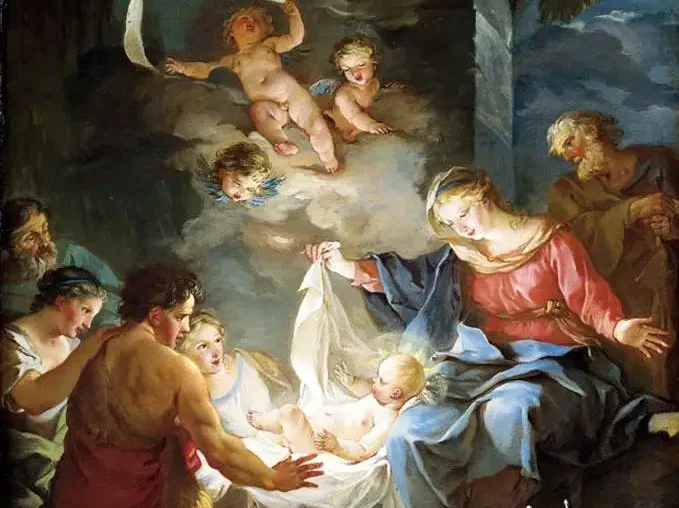Contenus
ToggleIn short
Christmas is the Christian holiday which celebrates the Nativity, that is to say the birth of Jesus of Nazareth. The Christmas holiday comes shortly after the winter solstice with which it is associated.

Christmas, Nativity
Established on December 25 IVe century and spread by the progressive Christianization of Europe and the Mediterranean basin, this Nativity celebration gradually takes the place of various festivals linked to the winter solstice (festival Germanic of Yule, feast of Mithras, Roman Saturnalia, etc.). Christ being presented as the “sun of justice” of a new era, his birth opens the Christian liturgical year during a ritualized midnight mass
The Gospel story of the birth of Jesus serves as the basis for centuries for a great artistic wealth (painting, sculpture, music, literature) which is reinforced by the popular diffusion of the nativity scene in XIIIe century, but the ferments of other traditions linked to the solstice do not disappear completely. This is how the German-Nordic fir, a sign of a living nature despite winter, is honored from XVIe century and even reaches churches.
Long before the appearance of Christianity, the time of the winter solstice was already a pivotal time of the year, which brought together many pagan beliefs relating to fertility, motherhood, procreation and astronomy. It therefore gave rise to numerous demonstrations. These ancient traditions have many points of similarity with the Christian holiday. Christians thus gradually succeeded in appropriating the surrounding cultures which became part of their identity and which ultimately evolved under the effect of syncretism and the Christianization of ancient society.
Before the Christianization of the West, a festival called Dies Natalis Solis Invicti, “day of the birth of the unconquered sun” was set for December 25 by the Roman emperor Aurelian in 274, as a great celebration of the cult of Sol Invictus (the unconquered sun). Aurélien thus chose a date close to the winter solstice, corresponding to the day after the end of the traditional Roman Saturnalia but also to the day on which the birth of the solar divinity Mithras was celebrated. Aurélien indeed wishes to religiously unify the empire, by choosing this date he pleases the followers of Sol Invictus and the cult of Mithras while placing the festival in the continuity of traditional Roman festivities.
During the first three centuries of its existence, the Christian Church did not bother to celebrate the anniversary of the birth of Jesus Christ, the date of which it did not know. The first mention of a Christian celebration on December 25 dates from the year 336 in Rome. Christianity thus in turn became one of the cults and religions of the Roman Empire celebrating a festivity during this time of the year.
Social networks
Today, Christians celebrate Christmas. The anniversary of Jesus' birth being unknown, it is very likely that December 25 was chosen in order to adopt the customs linked to this date. Thus the different Christmas traditions come from various parts of Europe and the Persian. #mythology #myth #legend #calendar #25December #christmas #nativity #jesus
Picture
